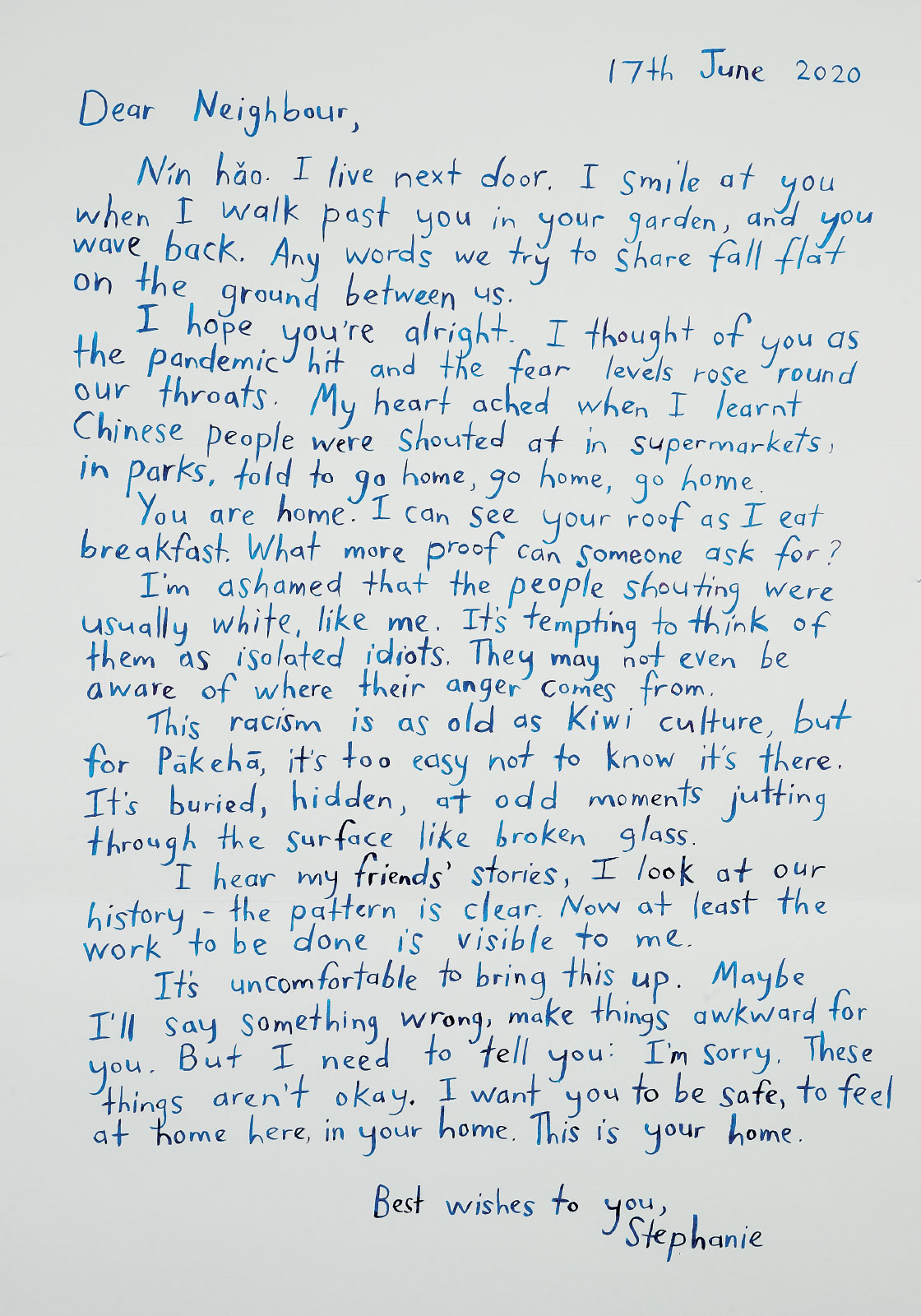Stephanie Christie
I live next door to an immigrant Chinese family. I’m a beginner learner of Mandarin so I can tell they speak Mandarin, and from our interactions I find they speak very little English. At the start of the lockdown I left a note in all our neighbours’ letterboxes with our contact details, just in case. I’ve been curious about what my neighbours made of this note. This is where the idea for this work has come from.
I know that blatant racism, unspoken exclusion and microaggressions were already a not uncommon experience for people of Asian descent in New Zealand. During the lockdown I wondered about how my neighbours were doing: whether they, like many others, were seeing the results of Trump’s promotion of racist discourses, along with the online re-activation of anti-Chinese narratives that have been here since the height of the British Empire.
As a Pākehā, I’m part of a privileged group that often feels entitled to decide who should be ‘at home’ here. In this work, I’ve disturbed this pattern by mingling it with the emotional context of home as a physical place where you’re safe to be yourself – a most basic and recognisable human need.
In a multicultural society, there are many strands of connection, along with communication gaps and unknowns. We can’t afford to fall for the easy answers offered by fear and stereotyping.
Encountering the complexity of reality is sometimes uncomfortable, and that’s okay. Engaging with these questions from a position of privilege has required me to pay close attention, to grow, and to push the edges of my creative practice.
Stephanie Christie is a poet, multimedia artist and creative coach.
She’s been obsessed with language since forever and uses spoken, penned, and painted words to unpack life as she knows it.


